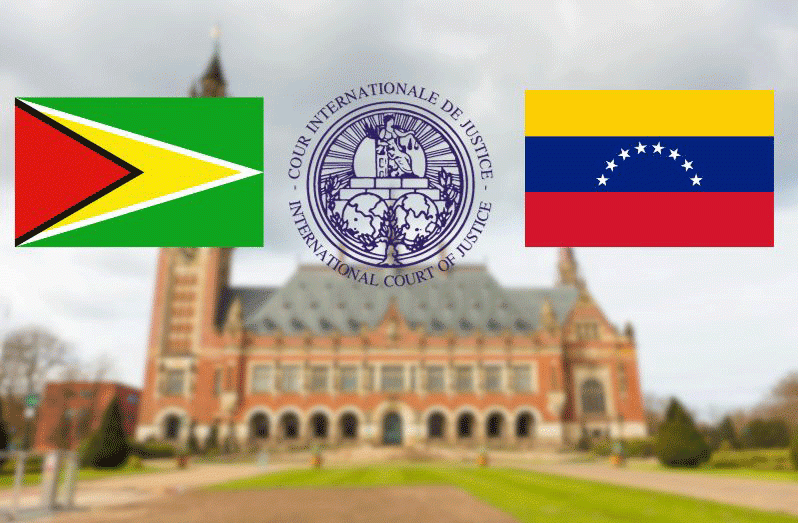The following is the full statement from the Government of Guyana and background on the issue at hand:
“ONE week ago, the Government of the Cooperative Republic of Guyana issued a statement denouncing the aggressive new measures taken by Venezuela in furtherance of its groundless and unlawful territorial claim to Guyana’s Essequibo region.
These new measures included a purported national referendum to ratify the Venezuelan government’s apparent decision to withdraw from the present judicial proceedings in the International Court of Justice (ICJ), and proceed unilaterally to incorporate the Essequibo region into its own national territory as an integral part of Venezuela.
Guyana properly characterised this naked threat of territorial aggression as: “Nothing less than the annexation of Guyana’s territory, in blatant violation of the most fundamental rules of the UN Charter, the OAS Charter and general international law.”
Guyana’s statement added that: “Such a seizure of Guyana’s territory would constitute the international crime of aggression. Following Guyana’s statement, CARICOM issued a strongly worded denunciation of Venezuela’s measures, fully supporting the sovereignty and territorial integrity of Guyana.”
Yesterday (Monday), in further response to Venezuela’s sinister plan for seizing Guyanese territory, Guyana sought the urgent protection of the International Court of Justice, by filing with the Court a Request for Provisional Measures.
In that Request, Guyana seeks from the court an order preventing Venezuela from taking any action to seize, acquire or encroach upon, or assert or exercise sovereignty over the Essequibo region or any other part of Guyana’s national territory, pending the court’s final determination of the validity of the Arbitral Award that established the land boundary between our two states, and the final and binding nature of that boundary.
Guyana has no doubt of the validity of that Arbitral Award and the land boundary, which Venezuela accepted and recognised as the international boundary for more than 60 years.
Because of the urgency of the matter, Guyana has asked the court to schedule oral hearings on its Request at the earliest possible date in advance of December 3, 2023, the date Venezuela has fixed for its sham referendum. Guyana insists, as does CARICOM, the Secretaries-General of the United Nations and Organization of American States, and the entire international community, that the controversy over the validity of the Arbitral Award and the land boundary must be resolved by the International Court of Justice, which will assure a just, peaceful, binding and permanent solution to this matter, in accordance with international law.
|
In fact, the court itself has determined, in two separate orders, that it has the exclusive jurisdiction to resolve this matter, and that it will do so. Twice Venezuela has formally objected to the court’s jurisdiction, and both times the court overwhelmingly rejected Venezuela’s objections.
In the interim, pending the oral hearing on its request and the issuance of the court’s order, Guyana urges CARICOM and the international community to continue reminding Venezuela of its obligations under international law, including its obligation to accept the ICJ’s jurisdiction, plead its case to the court, and comply with the court’s rulings and judgments.”
In April of this year, the World Court ruled that the case Guyana brought before it seeking to affirm the validity of the 1899 Arbitral Award settling the boundaries between it and Venezuela was admissible.
This meant that the court could move forward with hearing the substantive case on its merits, of whether the1899 arbitral award settling the boundaries of the two countries is valid and binding.
The ruling marked the second time that the international court has rejected jurisdictional objections raised by Venezuela.
Guyana moved to the ICJ with its case in March 2018, challenging the non-participating Bolivarian Republic of Venezuela over its disagreement on the legal validity and binding effect of the 1899 Award.
Venezuela maintained that the ICJ was without jurisdiction to hear the case and refused to participate in the court proceedings.
The Spanish-speaking country had claimed that it is the “sole indisputable inheritor” of the Essequibo region and the Monetary Gold Principle.
Although Venezuela had claimed that the ICJ did not have jurisdiction to hear the substantive case, it made a U-turn following the court’s December 2020 ruling on that aspect of the case. Venezuela, on that occasion, contended that Guyana had no standing in the matter. The court unanimously rejected Venezuela’s objection.
Guyana is seeking a final and binding judgement that the 1899 Arbitral Award, which established the location of the land boundary between then British Guiana and Venezuela, remains valid, and that the Essequibo region belongs to Guyana and not Venezuela.












